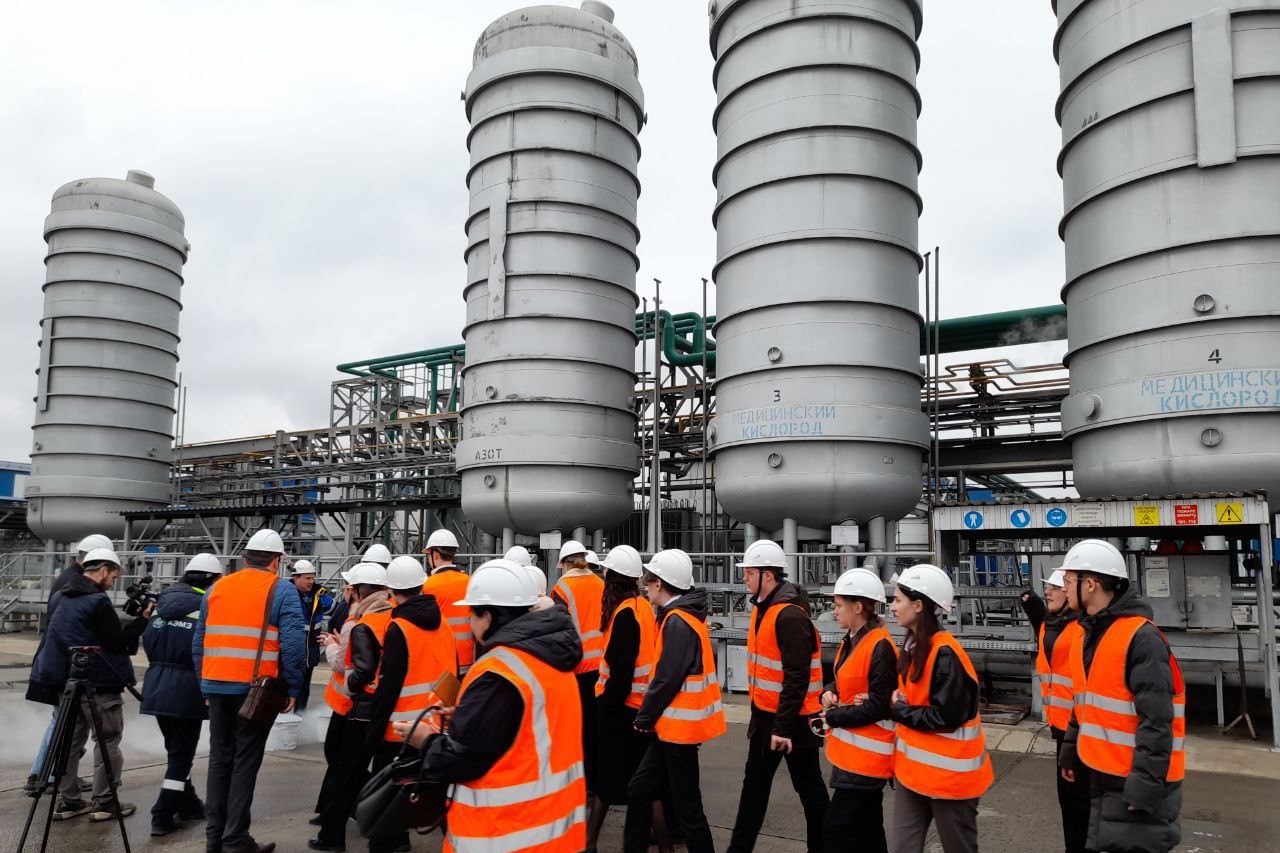The region offers four industrial routes for tourists and locals, combining over 20 processing, food, and engineering plants, construction material producers, and wineries, according to the governor of Kuban.
The regional head noted that around a hundred more companies organize tours of their facilities for students and schoolchildren.
“Over the past two years, Krasnodar Krai has become the center of industrial tourism in southern Russia. Today, industrial tours from regions in the Southern and North Caucasian Federal Districts intersect here. We are developing this new direction systematically, in collaboration with neighboring areas,” the governor emphasized.
The four industrial routes include “Wine Roads of Krasnodar Krai,” “Industrial Kaleidoscope of the Black Sea Coast,” “Construction Power of Psebay,” and “Industrial Might of the Russian South” in Krasnodar, featuring leading engineering and food production enterprises.
Since 2023, Krasnodar Krai has been developing industrial tourism under the educational program of the Agency for Strategic Initiatives. During this time, representatives from 25 industrial and winemaking companies have received training and certification to operate in this field.
The Kuban Industrial Development Fund has established a dedicated unit to promote this new sector. Coordination efforts are based at the regional Chamber of Commerce and Industry, where a tourism entrepreneurship committee has been formed.
After two years in the program, Kuban has ranked among Russia’s top 10 regions for industrial tourism development, according to the Krasnodar Krai administration.
Additionally, over six months, the volume of shipped industrial products in Kuban has grown significantly. The top three areas in production output were Abinsky District, Krasnodar, and Novorossiysk. According to regional statistics, the industrial production index for the first half of the year reached 100%.
Krasnodar Krai
Krasnodar Krai is a federal subject of Russia located in the North Caucasus region, known for its fertile land, Black Sea coastline, and vibrant cultural heritage. Historically part of the Kuban Cossack territory, it was formally established in 1937 and is now a major agricultural and tourist hub, home to cities like Krasnodar and Sochi, host of the 2014 Winter Olympics. The region blends Russian, Cossack, and indigenous Caucasian influences, with a rich history tied to trade, warfare, and Soviet development.
Wine Roads of Krasnodar Krai
The Wine Roads of Krasnodar Krai are a network of scenic routes through Russia’s premier wine region, known for its fertile soils and favorable climate. This area has a rich winemaking history dating back to the 19th century, when European grape varieties were introduced. Today, visitors can explore vineyards, wineries, and tasting rooms while learning about traditional and modern Russian viticulture.
Industrial Kaleidoscope of the Black Sea Coast
The *Industrial Kaleidoscope of the Black Sea Coast* refers to the diverse industrial heritage along the Black Sea, including ports, shipyards, and Soviet-era factories that shaped the region’s economy. Many sites reflect its strategic importance in trade and industry, though some have declined since the late 20th century. Today, some locations are being repurposed for tourism or cultural projects, blending history with modern revitalization efforts.
Construction Power of Psebay
The *Construction Power of Psebay* refers to a historical and cultural site in Russia, commemorating the laborers and engineers who built the Psebay Reservoir and hydroelectric complex in the mid-20th century. This project was part of Soviet industrialization efforts, harnessing the power of the Psebay River to support regional energy and irrigation needs. Today, it stands as a symbol of human ingenuity and the transformative impact of infrastructure development.
Industrial Might of the Russian South
The *Industrial Might of the Russian South* refers to the historically significant industrial regions in southern Russia, particularly around Rostov-on-Don, Krasnodar, and Volgograd, which played a key role in the country’s industrialization during the late 19th and 20th centuries. Known for steel production, machinery, and agriculture, this area became a vital economic hub under the Soviet Union, contributing to wartime efforts and postwar reconstruction. Today, it remains an important industrial and logistical center, though some sites also serve as heritage landmarks of Russia’s industrial past.
Agency for Strategic Initiatives
The Agency for Strategic Initiatives (ASI) is a Russian organization established in 2011 to promote innovation, entrepreneurship, and economic modernization. It supports startups, implements social and economic projects, and fosters public-private partnerships. ASI is known for initiatives like the “National Technology Initiative” and “Young Professionals,” aimed at boosting Russia’s technological and workforce development.
Kuban Industrial Development Fund
The Kuban Industrial Development Fund is a financial institution established to support economic growth and industrial development in the Kuban region of Russia. It provides funding and investment opportunities for local businesses, infrastructure projects, and innovation initiatives. While specific historical details are limited, such funds are typically created to stimulate regional economies and diversify industrial sectors.
Chamber of Commerce and Industry
The Chamber of Commerce and Industry (CCI) is an organization that supports and promotes business interests within a specific region or country. Originating in Europe during the late 16th century, modern CCIs facilitate trade, provide business services, and advocate for economic policies. They play a key role in fostering local and international commerce.






